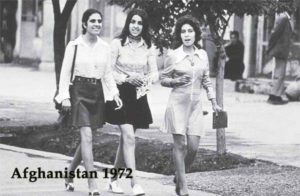 Twill vex thy soul to hear what I shall speak; for I must talk of murders…
Twill vex thy soul to hear what I shall speak; for I must talk of murders…
Titus Andronicus, act 5, sc. 1
I will not repeat comments and reflections on the Orlando massacre. Rather, I will follow an imaginary trail from the denouement to the origins of the horror – or I should say horrors, for the Orlando mass-killing was spectacular in size, but replicated in occurrence.
As we know, the origins of things present are to be found in the things past. And, as Leibniz suggested, a reality is never better understood than through its causes. Therefore, as per Polonius, “… now remains / That we find out the cause of this effect.” (1)
Readers may be familiar with the butterfly flutter theory, whereby something as small as the flutter of a butterfly’s wing can ultimately cause a typhoon half a world away. The philosophy behind that theory inspires this investigation. Which is a way of saying, “There are more things in heaven and earth, Horatio, than are dreamt in our philosophy” (2). And sometimes they are not dreams, they are concrete things, as long as we are willing to see them
Some may say that there are as many histories as there are historians, and the lines of causation are essentially infinite. Therefore I shall venture to lay the case before you, in hopes that you agree, if you think it just – or endeavor to rectify it, if I am mistaken. After all, history is not a scientific deduction, but an imaginative guess at the most likely generalizations.
With this in view, the trail begins in the remote 1956. The reason for starting from a time so long past has to do with more than just an actual sequence of causal events. For, while the events were unfolding, the very fabric of society was changing dramatically. It does not matter that the epochal changes are unnoticed while they occur, just as we do not recognize our individual aging from one day to the next.
After the installation of the Zionist state in Palestine (1948) and the ethnic cleansing of the existing population, Israel decided that they needed more land and invaded the Sinai, in 1956.
Not long before this invasion, Nasser had become the ruler of Egypt, which, beforehand, was a British protectorate. It was the post-war era of decolonization and of claims to national sovereignty by the colonized world. Nasser wanted an independent Egypt, with a foreign policy of non-alignment between the US and the Soviet Union.
One of Nasser’s first actions was the nationalization of the Suez Canal, which triggered a war, launched simultaneously by England, France and Israel against Egypt. In retaliation Nasser blocked the Canal. The war became known as the Tripartite Aggression. In an unusual turn of events, both America and the USSR agreed to stop the aggressors via an ultimatum and to impose a halt to the invasion.
It should be noted that the influence of Zionism on American politics was then a fraction compared to the last 30 years.
Nasser had ambitions of pan-Arab unification, and the US wanted to keep Egypt away from the sphere of influence of the Soviet Union. The US tried to enroll Egypt into an anti-USSR alliance, but Nasser did not go along. For he sensed that the US would eventually support Israel in the latter’s expansionist ambitions.
After the Tripartite Aggression, Nasser still tried to obtain arms from the US – the US essentially refused due to increasing Israeli pressure. The end result was that the USSR expanded its influence in Egypt, leading to the financing, design and construction of the biblically massive Aswan Dam on the Nile. The Aswan dam started filling in 1964.
Meanwhile, the US had to deal with other critical issues, internal and external. Fidel Castro’s revolution caught the Administration by surprise. The expropriation of latifundian Cuban lands and nationalization of productive assets threw the US into a panic and into a belligerent and aggressive mode. This led first to the infamous and failed Bay of Pig invasion, followed by the Missile Crisis of 1961.
Then the assassination of President Kennedy and the growing and eventual massive direct involvement of the US in Vietnam, shifted American Foreign Policy’s focus away from the Middle East, at least temporarily.
The Zionist’s aim at a “Greater Israel” had not ended and was resurrected with the 1967 imperialistic invasion of the West Bank, part of Syria (Golan Heights), Gaza and the Sinai. In the West the invasion was portrayed as an act of self-defense.
One event during the war demonstrated that the US were still rated as being somewhat independent from Israel. The Israelis thought it necessary to launch a naval and aerial attack on the US Navy Ship Liberty, in the Mediterranean, camouflaging the attack as coming from Egypt. 34 Americans died, 171 were wounded.
Subsequently, Israel apologized, claiming it confused the American with an Egyptian ship, though all the surviving crew members denied the feasibility of the claim.
After the “six day war” there was an expectation that Israel would remove itself from the invaded lands – following the famous and still extant UN Resolution 242. This, as we know was not to be, and Israel began an aggressive campaign of ethnic cleansing and colonization in the occupied Western Palestine – plus establishing settlements in Gaza and the Sinai.
At this juncture, Egypt was still tied up politically to the Soviet Union and it became the objective of the US State Department to sever the association. Kissinger, considered by many the quintessential war criminal, “a monstrous injurer of heaven and earth!” (3) conducted the maneuver.
The first ‘terrorist’ hijackings of planes occurred in 1969-70, when it became clear that Israel had no intention to relinquish the invaded territories. To this neo-colonialist invasion we can attribute the cause and the beginning of security measures, leading eventually to the almost humiliating individual searches, daily conducted in airports worldwide on millions of people.
During the Yom Kippur War of 1973, the Arab States as a whole still stood on the side of Egypt and the Palestinians against Israel. Then the US told Sadat, who succeeded Nasser, that Israel would return the Sinai to its rightful owners, in exchange for Egypt joining the West (US) and its policies. Sadat agreed, but this was a blow for Palestinian claims to their own land.
The Carter administration succeeded in establishing peace between Egypt and Israel. Very reluctantly Israel removed its settlements from Gaza and the Sinai. The peace treaty, effectively, put an end to any hope for the Palestinians’ rights to their own land. Their weapons of defense became the occasional suicide bombings and the so-called “intifadas’ where for every Israeli casualty, hundreds or thousands of Palestinians would die.
Still, the colossal injustice inflicted on Palestine continued to stir the consciousness of the Arab world, though the alliance was fraying. Saudi Arabia and the Gulf States were ready to jump ship.
In the meantime, the Islamic Revolution in Iran (1978-1980) had the effect of substantially shifting the concern and defense of the Palestinian state and people from the Arab world to Iran. It is true that Iraq, Libya and Syria remained a front (however disjointed) against the Zionist entity – but these states were already earmarked for destruction, as part of the “Greater Israel” strategy. Which strategy developed concurrently with the increase of the Zionist presence in US government.
A quantum leap in US imperialistic politics occurred during the Reagan administration, with its worldwide scattered invasions, assassinations and bombings. Accompanied by the development of the strategies of “hybrid wars” and “color revolutions,” worked out during the 1980s.
The first (unsuccessful) color revolution took place in China in 1989, followed, shortly later, by the disastrous (for Russia) color revolution. It led, as we know, to the dissolution of the Soviet Union and to the temporary transformation of Russia into a US colony and a sewer tank of the most abominable corruption – accompanied by the accumulation of immense wealth for the thieves and abject poverty for just about everyone else. “For nothing can seem foul to those that win.” (4) Furthermore, it is a property of imperialism to diffuse corruption in new geographies and to establish it as a winning and competitive brand.
As part of the campaign to weaken the Soviet Union, Reagan had also launched a “hybrid war” in Afghanistan, a country that had been a long-standing and traditional ally of the Soviet Union. It was actually the government of Kabul who asked the USSR to intervene against the so-called US-armed Mujahedeen, funereally called by Reagan “freedom fighters.”
The neo-cons, still clinging to the murderous lie of the ‘freedom fighters’, may compare these two pictures, worth the proverbial thousand words.
 Now the patient reader will rightfully ask how is all this is connected with the Orlando massacre (and other similar mass-murders, conducted by individuals associated with the
Now the patient reader will rightfully ask how is all this is connected with the Orlando massacre (and other similar mass-murders, conducted by individuals associated with the  Islamic faith). The answer is that there cannot be a coherent explanation without immersing ourselves in the climate where the perpetrators find themselves immersed. In turn, their developing worldview is the result of a sequence of events and changes, as so far outlined. The immigrants (including those who eventually would become terrorists), typically, find themselves in a social climate and culture that trigger problems of conscience and self-identity quite different from ours.
Islamic faith). The answer is that there cannot be a coherent explanation without immersing ourselves in the climate where the perpetrators find themselves immersed. In turn, their developing worldview is the result of a sequence of events and changes, as so far outlined. The immigrants (including those who eventually would become terrorists), typically, find themselves in a social climate and culture that trigger problems of conscience and self-identity quite different from ours.
There were some other critical changes in US policies, which have a bearing on subsequent events. In 1965 the US modified the immigration system, abolishing quotas assigned to nationalities. This had the effect of increasing substantially the number of immigrants from third world countries.
In turn, these immigrants were (are) not typical of the models shown by the images of sub-human misery in the slums of Bangladesh or other similar. They belonged to a class that had some degree of instruction and literacy. Instruction and literacy that, while still in their native lands, enabled them to absorb, in their fullness, the powerful propagandist messages, in which the US had and has no rivals.
Messages that proclaim simultaneously several theories presenting them as facts. Typically (for concision), that the US is exceptional, the greatest nation on earth, the quintessential abode of freedom and democracy – where hard work leads inevitably to wealth, where the Eldorado is just there for the grabbing, where people are happy because the pursuit of happiness is built in their founding proclamation, etc.
The hopeful immigrant, impressed and bedazzled by these ideas and icons, also takes it for granted that all this happiness translates into a sense of community, different in expression, but not in substance from the familiar environment he left behind.
He who has travelled in the Middle East will have noticed how much of life occurs outside the house, at the ubiquitous cafes and tea houses, where men of all ages sit, sip and animatedly discuss for hours all sorts of issues – or so I learned by inquiring from local friends who could translate.
A perceptive reader may say that the phenomenon is by no means limited to the Middle East. True, but due to local conditions and traditions, these extended informal meetings and debates constitute a potent element of communal bonding, and belong to the fabric of (local) Islamic life.
Most of us probably don’t care, but the immigrant, especially if Islamic, finds an America dramatically different from what he had been led to expect. The “outward shows” (5) correspond more or less to what he saw on television or at the movies, but he quickly discovers that the substance is much different from what he imagined. This happens both to first generation and second generation immigrants – and it is likely to continue further, especially if immigrants attempt to maintain, as much as possible, a certain mode of thought and attitude on life reflecting the culture of their land of origin.
They witness the rapacity of power and, perhaps, only partially consciously, they notice,
“How quickly nature falls into revolt,
When gold becomes her object!” (6)
The immigrant often observes that the only situation when he finds a receptive attitude, or is greeted with a smile, is when the smiling party tries to sell him something. In all other circumstances he may just be an inanimate object – he does not exist.
Many seek some kind of refuge in their mosques. Some, as it can be expected, end up with a cultural commixtion in which elements of the original culture blend with some of the new – and not the best of either.
However unjustly and irrationally, some of those affected develop a sense of deep hatred towards a society, which they feel has cheated them, by representing itself as it was not. Plus dismissing them as disposable goods in their country of origin, and objects of despise in their new country of residence.
Couple this to the epochal changes caused by the advent of the information age. Now the immigrant can see what happens in his own country of origin and can easily find people sharing similar feelings of hatred and resentments.
Fire, that’s closest kept, burns most of all. (7) And when it explodes it is deadly. Orlando is the latest but not the only result of this state of mind. It gradually builds hatred against the surrounding social environment.
In the instance, it does not matter that ISIS is essentially a US creation, fulfilling the role of the Orwellian Oceania, to justify the trillions sucked out of the economy ‘for defense’, and ending into the pockets of the few. In a paradoxical double inversion of roles, ISIS, however useful to US foreign policies, and therefore, technically, an indirect ally, becomes also a beacon for Islamic immigrants who feel culturally cheated and mentally distraught.
In the quagmire of conflicting sound bites and reports, the mainstream media aims routinely at converting tragedy into a simple selling spectacle. Therefore considerations about the interaction of abominable foreign policies, war crimes on par with the historic worst, attitudes toward fellow beings and influences of cultures and tradition, are deemed irrelevant and without substance.
Orlando was the most spectacular of domestic mass-murders traceable to Islamic revenge. It is natural that only ‘lone wolves’ carry out these murders, which, by the way, make a mockery of the billions spent by the NSA to prevent terror.
In the end, what is surprising is not the event itself, but that there are not more of them. And considering the millions killed by the US since WW2, in sundry invasions and wars, we could say – biblically speaking – that you reap what you sow. Or Shakespeareanly,
“… that we but teach
Bloody instructions, which, being taught, return
To plague the inventor: this even-handed justice
Commends the ingredients of our poison’d chalice
To our own lips” (8)
Pity that the victims are those least responsible for the sowing, or the teaching. Nor remedies are in sight – at least until US foreign policy will cease contriving to perpetuate imperial gratifications and trying to fit everybody in the world to its purpose, by radical corruption.
But what was the equivalent of the butterfly flutter at the beginning of this history? The answer lies in the lack of US will to tell Israel, in 1956, that no more expansions will be allowed, beyond the land taken from the Palestinians in 1948. On the contrary; in time, as we well know, followed the remorseless and still ongoing destruction of Islamic lands and people.
All this should remind us that, “The abuse of greatness is, when it disjoins remorse from power”. (9)
** 1,2, Hamlet
** 3, King John
** 4 King Henry IV, p1
** 5, Merchant of Venice
** 6, King Henry IV, p2
** 7, Two Gentlemen from Verona
** 8, Macbeth
** 9, Julius Caesar
In the play (title quote). The evil Aaron responds to a request from Lucius to give an account of his (Aaron’s) crimes. In exchange, Lucius will spare the life of Aaron’s baby, born from the adulterous relation with Queen Tamara. Aaron starts with this declaration
